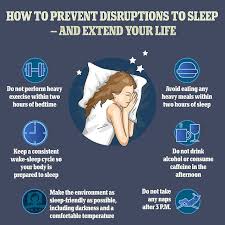The mind-body connection is a powerful and complex relationship that has been studied for centuries. It refers to the interdependent relationship between our mental and physical health. Our thoughts, emotions, and beliefs can have a significant impact on our physical well-being, and vice versa.
For example, when we experience stress or anxiety, our body responds with physical symptoms such as increased heart rate, muscle tension, and shallow breathing. On the other hand, chronic pain or illness can lead to feelings of depression or anxiety.
The mind-body connection is not just a theoretical concept – there is scientific evidence to support its existence. Studies have shown that practices such as meditation, mindfulness, and yoga can have positive effects on both mental and physical health. These practices help us become more aware of our thoughts and emotions, which in turn can lead to greater self-awareness and emotional regulation.
One way to understand the mind-body connection is through the concept of neuroplasticity. Neuroplasticity refers to the brain’s ability to change in response to new experiences. When we engage in activities that promote positive thoughts and emotions, such as gratitude or compassion meditation, we are strengthening neural pathways associated with those emotions. This can lead to lasting changes in our brain structure and function.
Similarly, engaging in physical activity can have positive effects on mental health. Exercise has been shown to reduce symptoms of depression and anxiety by increasing levels of endorphins – chemicals in the brain that promote feelings of pleasure and well-being.
The mind-body connection also plays a role in chronic illness management. Chronic illnesses such as diabetes or heart disease require ongoing management that can be physically and emotionally taxing. Practices like meditation or relaxation techniques can help reduce stress levels associated with managing chronic illness.
In conclusion, the mind-body connection is a powerful relationship that impacts our overall health and well-being. By practicing self-awareness through mindfulness techniques or engaging in physical activity regularly, we can strengthen this connection and promote positive health outcomes. It’s important to remember that our thoughts and emotions are not separate from our physical health – they are intricately connected and should be treated as such.
7 Tips for Enhancing Your Mind-Body Connection
- Practice mindfulness – focus on being present in the moment and pay attention to your body’s sensations and feelings.
- Exercise regularly – physical activity can help reduce stress, improve mood, and boost self-confidence.
- Eat a healthy diet – nourish your body with nutritious food to maintain energy levels throughout the day.
- Get plenty of sleep – make sure to get enough rest so you can feel refreshed and energized each day.
- Take time for yourself – carve out some time for yourself each day to relax and unwind from your busy schedule.
- Connect with nature – spend some time outdoors in nature for an instant mood booster!
- Practice deep breathing exercises – take slow, deep breaths to help relax your body and mind during times of stress or anxiety
Practice mindfulness – focus on being present in the moment and pay attention to your body’s sensations and feelings.
Mindfulness is a powerful tool for strengthening the mind-body connection. It involves focusing on the present moment and being fully aware of your thoughts, emotions, and physical sensations. By practicing mindfulness, you can increase your self-awareness and develop a deeper understanding of how your mind and body are interconnected.
One way to practice mindfulness is to focus on being present in the moment. This means letting go of distractions and resisting the urge to dwell on past events or worry about the future. Instead, try to focus on what’s happening right now – pay attention to your surroundings, notice your breathing, and become aware of any physical sensations you’re experiencing.
Another important aspect of mindfulness is paying attention to your body’s sensations and feelings. This means tuning in to what your body is telling you – are you feeling tense or relaxed? Are you experiencing pain or discomfort? By paying attention to these signals, you can better understand how your thoughts and emotions are affecting your physical health.
Practicing mindfulness can have numerous benefits for both mental and physical health. It can help reduce stress levels, improve sleep quality, boost mood, and even lower blood pressure. By taking a few minutes each day to practice mindfulness, you can strengthen the mind-body connection and promote overall well-being.
In conclusion, practicing mindfulness is an excellent way to strengthen the mind-body connection. By focusing on being present in the moment and paying attention to your body’s sensations and feelings, you can increase self-awareness and develop a deeper understanding of how your thoughts and emotions impact your physical health. So take some time each day to practice mindfulness – it’s a small step that can have big rewards for both mind and body.
Exercise regularly – physical activity can help reduce stress, improve mood, and boost self-confidence.
Exercise is not just good for your physical health, but it can also have a positive impact on your mental health. Regular physical activity has been shown to reduce stress, improve mood, and boost self-confidence.
When we exercise, our body releases endorphins – chemicals in the brain that promote feelings of pleasure and well-being. This can lead to a reduction in symptoms of anxiety and depression. Exercise also helps us manage stress by reducing levels of cortisol – a hormone associated with stress.
Regular exercise can also help boost self-confidence. When we set goals and achieve them through physical activity, we feel a sense of accomplishment and pride in ourselves. This can translate into other areas of our lives, such as work or relationships.
In addition to the mental health benefits, regular exercise can also improve our physical health by reducing the risk of chronic illnesses such as heart disease or diabetes.
It’s important to remember that exercise doesn’t have to be intense or time-consuming to reap these benefits. Even small amounts of physical activity – such as going for a walk or doing some light stretching – can have a positive impact on our mental and physical well-being.
In conclusion, regular exercise is an important aspect of maintaining both our physical and mental health. By incorporating even small amounts of physical activity into our daily routine, we can reduce stress levels, improve mood, boost self-confidence, and improve overall health outcomes.
Eat a healthy diet – nourish your body with nutritious food to maintain energy levels throughout the day.
Eating a healthy diet is not only important for maintaining physical health, but also for promoting a strong mind-body connection. The food we consume provides the nutrients and energy needed to fuel our bodies and minds throughout the day.
When we eat a balanced diet that includes plenty of fruits, vegetables, whole grains, lean proteins, and healthy fats, we are providing our bodies with the necessary vitamins and minerals needed for optimal health. This can lead to increased energy levels, improved mood, and better cognitive function.
On the other hand, consuming a diet high in processed foods and added sugars can have negative effects on both physical and mental health. These types of foods can lead to blood sugar imbalances, which can cause fatigue and mood swings.
In addition to providing essential nutrients, eating a healthy diet can also promote positive habits such as mindful eating. Mindful eating involves paying attention to the sensory experience of eating – noticing the taste, texture, and smell of food. This practice can help us become more aware of our hunger cues and prevent overeating.
Overall, nourishing your body with nutritious food is an important aspect of promoting a strong mind-body connection. By consuming a balanced diet that supports optimal physical health, we are also supporting mental well-being. So next time you reach for that sugary snack or fast food meal, remember the impact it may have on both your body and mind – choose to nourish yourself instead.
Get plenty of sleep – make sure to get enough rest so you can feel refreshed and energized each day.
Getting enough sleep is essential for maintaining a healthy mind-body connection. Sleep allows our body to rest and recover, which is critical for physical health. Lack of sleep can lead to fatigue, decreased immune function, and even chronic health conditions such as obesity or diabetes.
Sleep also plays a crucial role in mental health. It helps us process emotions and consolidate memories, which is important for learning and problem-solving. When we don’t get enough sleep, we may experience mood swings, difficulty concentrating, and increased stress levels.
To ensure that you’re getting enough restful sleep each night, it’s important to establish healthy sleep habits. This includes setting a regular bedtime routine, avoiding caffeine and alcohol before bed, and creating a comfortable sleeping environment.
Getting enough sleep doesn’t just benefit our physical and mental health – it also improves our overall quality of life. When we’re well-rested, we have more energy to tackle daily tasks and enjoy leisure activities. We’re also better equipped to handle stressors that may arise throughout the day.
So if you want to improve your mind-body connection, make sure you’re getting plenty of restful sleep each night. Your body will thank you!
Take time for yourself – carve out some time for yourself each day to relax and unwind from your busy schedule.
In our fast-paced world, it can be challenging to find time for ourselves. We often prioritize work, family, and other responsibilities over our own well-being. However, taking time for ourselves is essential for maintaining a healthy mind-body connection.
Carving out some time for yourself each day to relax and unwind from your busy schedule can have a significant impact on your mental and physical health. It allows you to recharge your batteries, reduce stress levels, and improve overall well-being.
There are many ways to take time for yourself. You can practice mindfulness techniques such as meditation or deep breathing exercises. You can also engage in physical activity that you enjoy, such as yoga or going for a walk in nature. Reading a book, taking a bath, or listening to music are also great ways to relax and unwind.
It’s important to remember that taking time for yourself doesn’t have to be a long process. Even just 10-15 minutes of relaxation each day can make a significant difference in how you feel both mentally and physically.
In conclusion, taking time for yourself is an important aspect of the mind-body connection. By prioritizing your own well-being through relaxation and self-care practices, you can improve your overall health and happiness. So go ahead – carve out some time each day for yourself – you deserve it!
Connect with nature – spend some time outdoors in nature for an instant mood booster!
Connecting with nature is a simple yet effective way to improve our mental and physical well-being. Spending time outdoors in nature has been shown to reduce stress levels, improve mood, and increase feelings of happiness and well-being.
When we spend time in nature, we are engaging in what is known as “green exercise.” Green exercise refers to physical activity that takes place in natural environments such as parks, forests, or beaches. Studies have shown that green exercise can lead to greater improvements in mood and self-esteem compared to indoor exercise.
In addition to the benefits of physical activity, spending time in nature allows us to disconnect from technology and the stresses of daily life. This can lead to a sense of calm and relaxation that is difficult to achieve indoors.
Nature also has a way of putting things into perspective. When we are surrounded by natural beauty and vast landscapes, our problems can seem smaller in comparison. This can help reduce feelings of anxiety or overwhelm.
So next time you’re feeling stressed or overwhelmed, take a break and spend some time outdoors in nature. Whether it’s a walk through the park or a hike through the woods, connecting with nature can provide an instant mood boost and improve your overall sense of well-being.
Practice deep breathing exercises – take slow, deep breaths to help relax your body and mind during times of stress or anxiety
Deep breathing exercises are a simple yet effective way to connect your mind and body, especially during times of stress or anxiety. When we’re feeling overwhelmed, our body’s natural response is to take shallow breaths, which can lead to increased tension and anxiety. By practicing deep breathing exercises, we can counteract this response and promote relaxation.
Deep breathing exercises involve taking slow, deep breaths through the nose and exhaling slowly through the mouth. This technique helps slow down our heart rate and relax our muscles. It also helps us focus on the present moment and bring awareness to our thoughts and emotions.
One popular deep breathing exercise is called “4-7-8” breathing. To do this exercise, inhale through your nose for four seconds, hold your breath for seven seconds, then exhale through your mouth for eight seconds. Repeat this cycle several times until you feel more relaxed.
Another technique that can be helpful is visualization – imagine yourself in a peaceful place like a beach or a forest while practicing deep breathing exercises.
Incorporating deep breathing exercises into your daily routine can help reduce stress levels and improve overall well-being. It’s important to remember that these techniques require practice – they may not work immediately but with regular practice it becomes easier to use them during stressful situations.
Overall, practicing deep breathing exercises is a simple yet powerful way to connect your mind and body while promoting relaxation during times of stress or anxiety.




